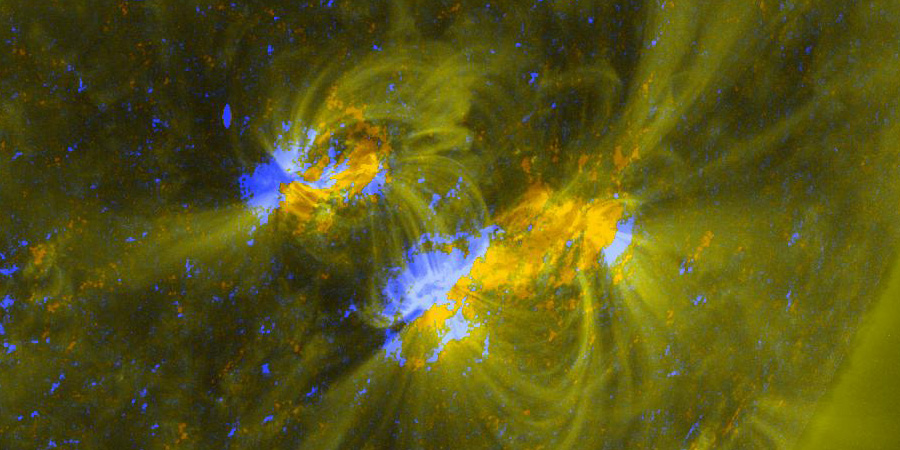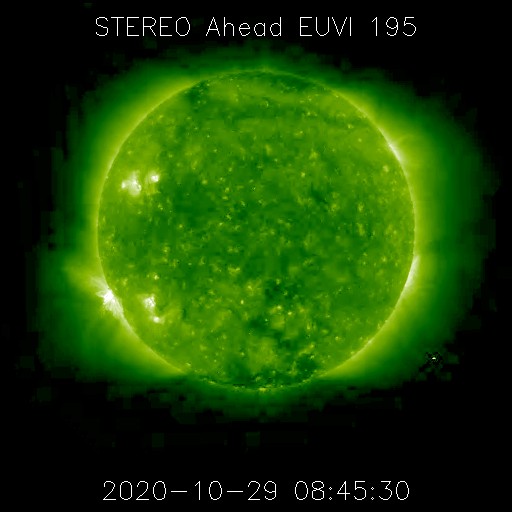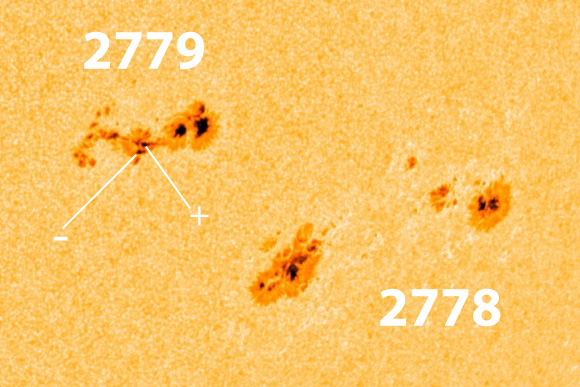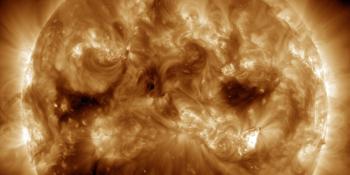Solar activity on the rise
Thursday, 29 October 2020 09:17 UTC

Solar Cycle 25 is underway. That shouldn't be news to you right? It was back in September that the NOAA SWPC came out with an official press release that Solar Cycle 25 started December last year. However, our Sun has been relatively quiet during the first few months of the new solar cycle. We had one M-class solar flare back in May and some smaller sunspot regions popping up every now and then but other than that things have been fairly quiet. Nothing out of the ordinary as our Sun slowly starts to ramp up towards solar maximum which should take place in 2025.
However, we do see an overall increase in the amount of active regions this week. Not only do we have two sunspot regions (2778 and 2779) on the earth-facing solar disk today with a fair amount of sunspots and in the case of sunspot region 2279 even a decently complex magnetic layout, we also see on the images coming from STEREO Ahead that there are some bright regions on the far side as well.

While we see that sunspot region 2778 is singing its last song as it decays, brand new neighboring sunspot region 2779 had a proper breakfast this morning and is growing at a rapid rate. While both sunspot regions are rotating away from Earth towards the west limb, it is nonetheless interesting to see the development in sunspot region 2779 over a time period of just 12 hours. At the moment there is even a minor delta structure to be found in sunspot region 2779 where two umbra of opposite polarity can be found within the same penumbra. It feels like years ago since we last talked about delta regions so lets refresh your memory: delta structures are often a necessity for strong solar flares to occur. We wont shout from the roofs right now that we are going to get major solar flares from sunspot region 2779 but if it develops the way it does now we should see more C-class solar flares today and even a small M-class solar flare can not be ruled out.

Some interesting developments to be found all over our nearest star. Is this just a short-lived uptick in solar activity or could this be a sign of things to come as we ramp up towards solar maximum? Time will tell but we are excited to have you onboard here at SpaceWeatherLive and inform you about the weather in space for years to come!
Thank you for reading this article! Did you have any trouble with the technical terms used in this article? Our help section is the place to be where you can find in-depth articles, a FAQ and a list with common abbreviations. Still puzzled? Just post on our forum where we will help you the best we can!
Latest news
Latest forum messages
Support SpaceWeatherLive.com!
A lot of people come to SpaceWeatherLive to follow the Sun's activity or if there is aurora to be seen, but with more traffic comes higher server costs. Consider a donation if you enjoy SpaceWeatherLive so we can keep the website online!

Space weather facts
| Last X-flare | 2025/03/28 | X1.1 |
| Last M-flare | 2025/03/31 | M1.2 |
| Last geomagnetic storm | 2025/03/27 | Kp5 (G1) |
| Spotless days | |
|---|---|
| Last spotless day | 2022/06/08 |
| Monthly mean Sunspot Number | |
|---|---|
| February 2025 | 154.6 +17.6 |
| March 2025 | 127 -27.6 |
| Last 30 days | 127 -25.7 |


